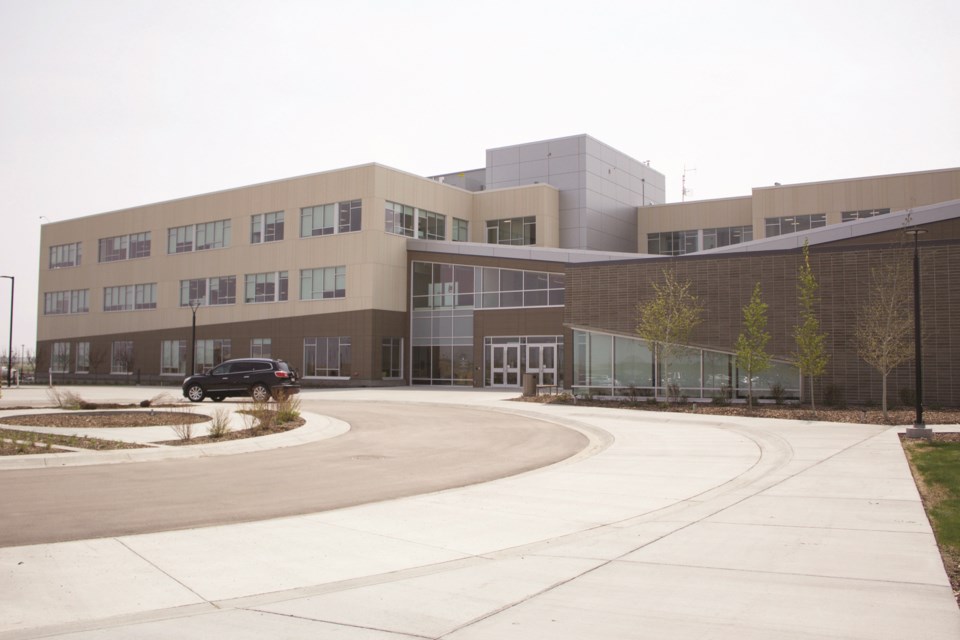Rocky View County (RVC) council approved amendments to three long-gestating off-site levy bylaws following a public hearing June 9.
The bylaws – which pertain to regional transportation, stormwater infrastructure and water/wastewater – will support the long-term development of key growth areas in the County.
“At the end of the day, we want to make sure development pays for its fair share, and we also want to encourage job-creators and investment to come forward in creating an attractive business climate,” said Coun. Jerry Gautreau. “It's nice to lower taxes and levies for growth – particularly in these uncertain economical times.”
According to Byron Riemann, executive director of Operations Services, the amendments included delaying half of the collection of levy payments until a development permit has been approved and collecting the other half at final acceptance of the infrastructure.
Another amendment differentiates between rural and urban levy rates. Although the rates are currently identical, Riemann said differentiating them would “provide the ability for higher collection in areas which have a higher density development and see an increased amount of traffic.”
The changes also allow for levy credit or relief to be provided, should a developer construct a roadway to its ultimate standard. Riemann said the new transportation levy applies only for roads identified in the County’s long-range transportation network.
According to Riemann, RVC’s off-site levy bylaws were established in 2014 and allow the County to collect funds from developers for development-specific servicing requirements. The levies help RVC recover capital costs incurred for infrastructure improvements.
Administration's report stated, “Growth resulting from new development creates opportunities for residents and businesses by fostering a vibrant and diverse economy and generating additional tax revenues to support County services. Growth also affects the costs of operating and maintaining the County’s infrastructure. Balancing the benefits and costs of growth is a key focus of administration’s Corporate Business Plan and the levy structure is a critical tool to help achieve that.”
Meeting virtually due to COVID-19, councillors debated the amendments for more than an hour. Coun. Samanntha Wright asked about decreases in the levy cost calculation and how the deficit would be paid for.
“We’re about a $10,000 per acre deficit from what was proposed originally," she said. "If we’re not collecting this money from levies, where is this money going to come from? We’ve heard in the past from CAO Al Hoggan that our revenues only come from one of two streams – levies or taxes.”
Wright also wondered if delaying collection of levy payments would impact the County’s cash flow. Riemann replied that staff provides that information to council on an annual basis under its capital programming.
“If there wasn’t enough funding to pay for a project, obviously it wouldn’t advance through capital programming itself and I doubt it would gain council approval,” he said.
Because of COVID-19, submissions for the public hearing had to be sent ahead of time. According to Riemann, most of the comments related to the transportation levy, while others focused on differentiating between rural and urban collection.
“There was a concern about a double-dipping potential," he said. "There was always a concern that development was required to build infrastructure that was going to be part of the regional network but not get credit for that. These bylaws now reflect that change.”
Letters of opposition indicated groups including Burnco Rock Products Ltd. and the Alberta Sand and Gravel Association took issue with the transportation levy, as it did not recognize grandfathering provisions, other financial contributions from the aggregate industry or temporary and seasonal uses.
Meanwhile, some residents felt the bylaws did not force developers to cover the cost of new infrastructure.
“We are not in support of the proposed lower levies to new development,” said Daniel and Catherine Courcy “These costs should be the responsibility of the developer and not existing land owners.”
In the sole letter of support, BILD Calgary praised the different payment collection for levies and the “overall reduction of levy rates.”
After reviewing submissions from the public, Reeve Greg Boehlke said he felt there was a “misconception” that RVC was giving new developers a break and placing costs on the taxpayer.
“It can be deceiving for people to think council is too dumb to understand what levies are, or we’re on the take and getting kick-backs,” he said. “I find that offensive, quite frankly. It tells me whoever wrote that letter doesn’t really understand the whole process. But I think all of council should take offence to the fact people think we’re getting kick-backs because we’re charging developers levies.”
Second and third readings for the transportation levy bylaw were approved 7-2, with Couns. Kevin Hanson and Wright opposed.
The stormwater bylaw passed both readings 8-1. Gautreau voted opposed, saying he preferred to table the bylaw and "come up with a wholesome plan and understanding of what this is going to cost with our regional partners."
The water/wastewater bylaw also passed 8-1 – Wright stood opposed.
Council also voted 7-2 on a motion arising from Deputy Reeve Al Schule, directing administration to prepare a report by the end of October regarding a 12.5 per cent impact on where funds could be allocated for best use regarding provincial infrastructure. Hanson and Wright voted in opposition.
Scott Strasser, AirdrieToday.com
Follow me on Twitter @scottstrasser19




